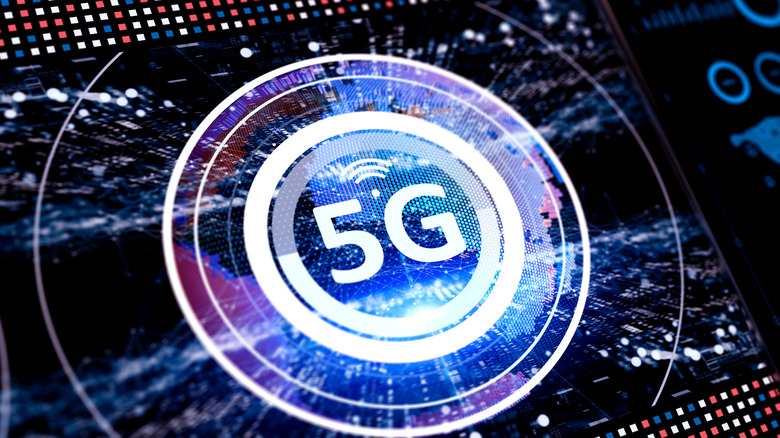What Is 5G Advanced And Will Your Phone Support It?
Get ready for another major wireless network upgrade. The next mainstream iteration of mobile networks, called "5.5G" or "5G Advanced," is coming, and carriers around the world are getting ready. Fret not, they are still working on 6G for the future, too, but this upgrade is about more speed and reliability.
Representatives from industry giants such as Telefonica, Deutsche Telekom, AT&T, Verizon, and Vodafone attended the Mobile World Congress in Barcelona, Spain and talked to CNBC, discussing the ins and outs of 5G Advanced. Vice president and head of InterDigital's wireless labs, Milind Kulkarni, told CNBC, "Main priorities for developing 5G Advanced standards are to increase commercial relevance of 5G by expanding vertical markets, resolve deployment issues, and continue technology evolution to build a bridge towards 6G."
One of the significant hopes for 5G Advanced's implementation is helping make it easier for people to play games on the go, as well as provide more accurate location information for your phone. Here's everything you can expect from 5.5G, or 5G Advanced, so far.
Differences between 5G and 5G Advanced
Despite carriers implementing 5G coverage in 2019, the number of worldwide consumers with access to the network is still surprisingly low. CNBC says 5G adoption is still "well below 'mainstream' levels." As of 2023, 1.6 billion mobile users were connected to 5G, not even half of the mobile connections worldwide. However, most everybody has seen 5G or 5G UC at the top of their smartphone when not connected to Wi-Fi. Like 4G before, 5G utilizes different radio frequencies than its predecessor to provide faster speeds, at lower latency, to more devices.
Because 5G has lower latency than 4G, the telecom industry intends for it to be the network to drive newer technologies like driverless vehicles. 5G Advanced is 5G's evolution and builds on the foundation it laid out despite its rollout not having actually been completed yet. Howard Watson, the chief technology officer for British telco company BT, said, "There will probably be a doubling of upstream capacities coming in release 18," referring to the upload and download capabilities of 5G Advanced.
More importantly, 5G Advanced will integrate AI and machine learning capabilities, making the network more "intelligent." What that means exactly is unclear, but AI has become wildly popular for analyzing data.
5G Advanced and your phone
While consumers might only just now hear about it, 5G Advanced is something that's been in the works for about a year now. Qualcomm announced in 2023 that it was developing new 5G Advanced modems, including Apple's popular emergency SOS features, implying that hardware developers are already working to integrate 5G Advanced capabilities in their future smartphones.
5G Advanced will enable a wider breadth of use cases for consumers by enhancing network performance with higher bandwidth, greater reliability, and lower latency. It will provide additional support for extended reality software, gaming, and video streaming. Many newer phones are being manufactured with 5G Advanced in mind, giving users access to it upon its initial rollout in their area. Huawei, the Chinese telecommunications supplier banned in America, expects the commercial deployment of 5G Advanced to begin in 2024.
It's still hard to tell when 5G Advanced will be made more widely available. Some telecommunication giants have begun initiating trials in some markets, a good first sign. Some companies say they expect trials to conclude and the protocols enabling 5G Advanced to be set by June 2024. One thing's for sure, major companies are eager to get it up and running.


